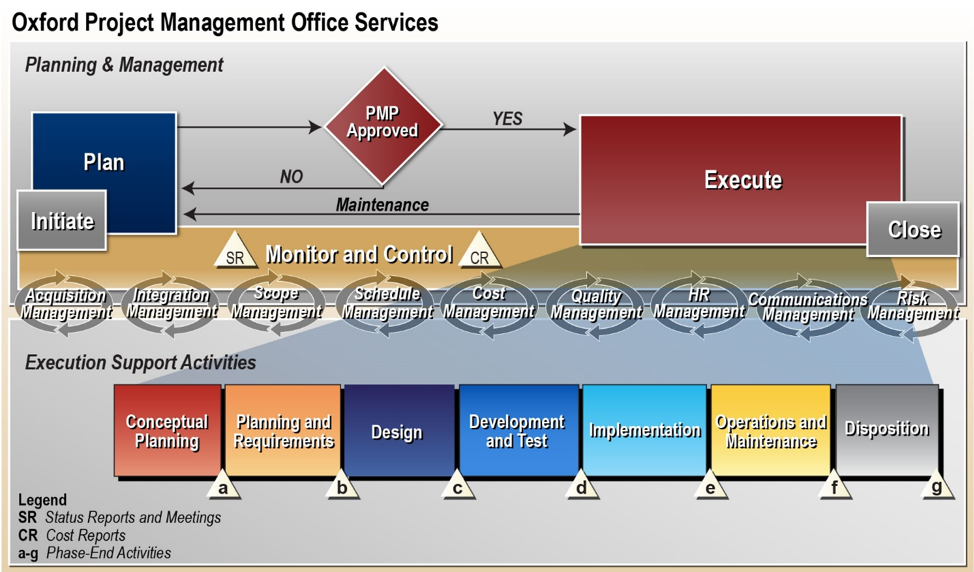Annually, the U.S. government invests billions of dollars on information technology (IT) systems. These IT systems are vital to U.S. cabinet level mission programs and administrative functions.
The government’s requirement and goal is to rely on systems and technology for a safe, secure, and dependable method to provide services, provide mission support, develop products, administer daily activities, and perform short- and long-term management functions. Agencies and departments must also ensure data privacy and security when developing and implementing information systems in conformance with a broad framework of privacy and protection policies.
The intent of Oxford’s PMO services are to improve the quality of government systems, during—not after—an agency’s software development life cycle process has executed. Oxford’s PMO methodology utilizes the specific agency’s software development life cycle framework as the basis for its phase-based PMO activity workflow. The focus is on the results obtained at the end of each life cycle phase, assessing deliverable technical quality and design compliance with applicable software life cycle and project planning requirements. An example of Oxford’s mature and customizable framework servicing our clients is presented graphically on the right.
What We Do
The planning and management of an Oxford IT investment includes the control of the following 5 Project Management Body of Knowledge (PMBoK) based phases of a project, to include:
Initiation, Planning, Execution, Monitoring & Control, and Close.
Execution phase PMO support activities are represented in the lower quadrant of the above graphic and include the management of PMBoKs 9 knowledge areas (acquisition, integration, scope, schedule, cost, quality, human resources, communications, and risk) as well as the management of all agency specific software development phase based and phase-end activities.
The benefits of the execution of Oxford based PMO services includes independent assessment, enhanced risk assessment, increased stakeholder visibility, and the verification of project deliverables per software lifecycle phase. Oxford maintains established processes in support of execution activities that consists of objectives, inputs, outputs, tools, activities, and checklists for each software life cycle phase. Oxford performs all PMO quality assurance framework activities in sequence with software/system development activities, in a manner that provides early feedback to the development organization, allowing modifications to processes and products in a timely and informative fashion. Any development gaps are identified, and fully mitigated via the contracting officer’s technical representative. This proactive but independent approach, as compared to an auditing or adversarial approach, results in fewer delays, reduced cost, higher product quality, and improvement in the accuracy of the development process itself.


